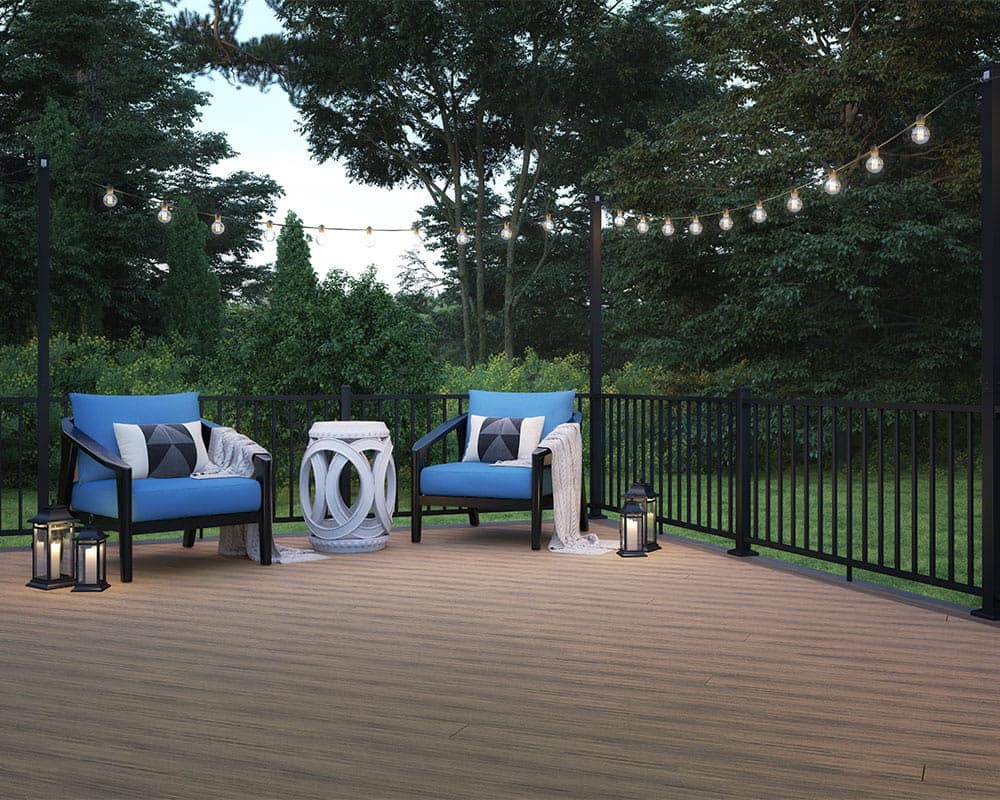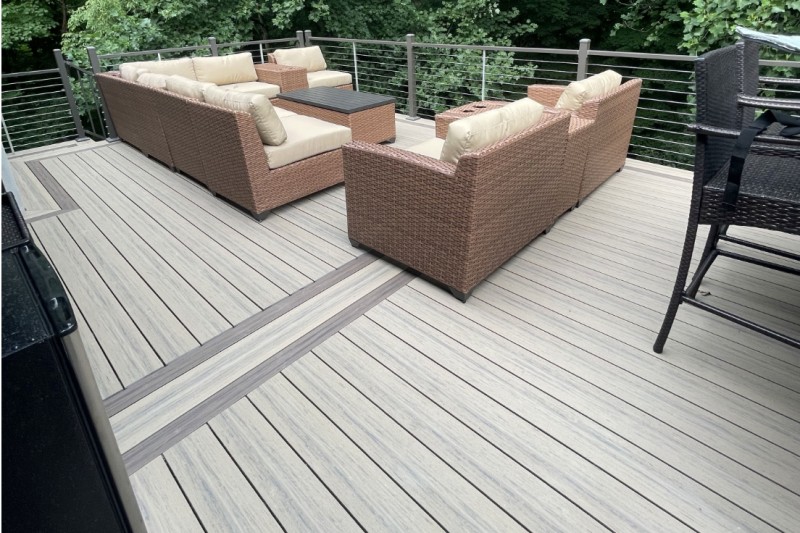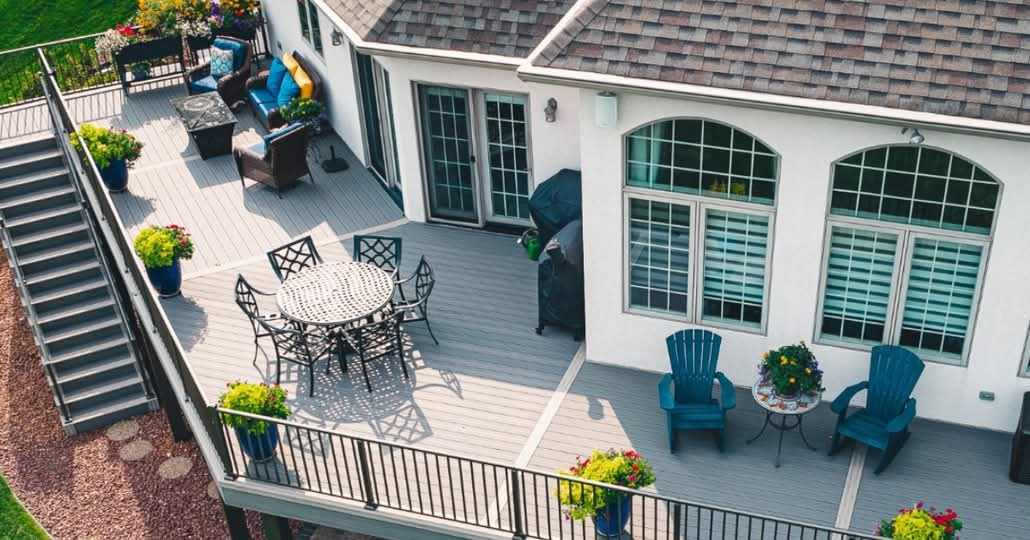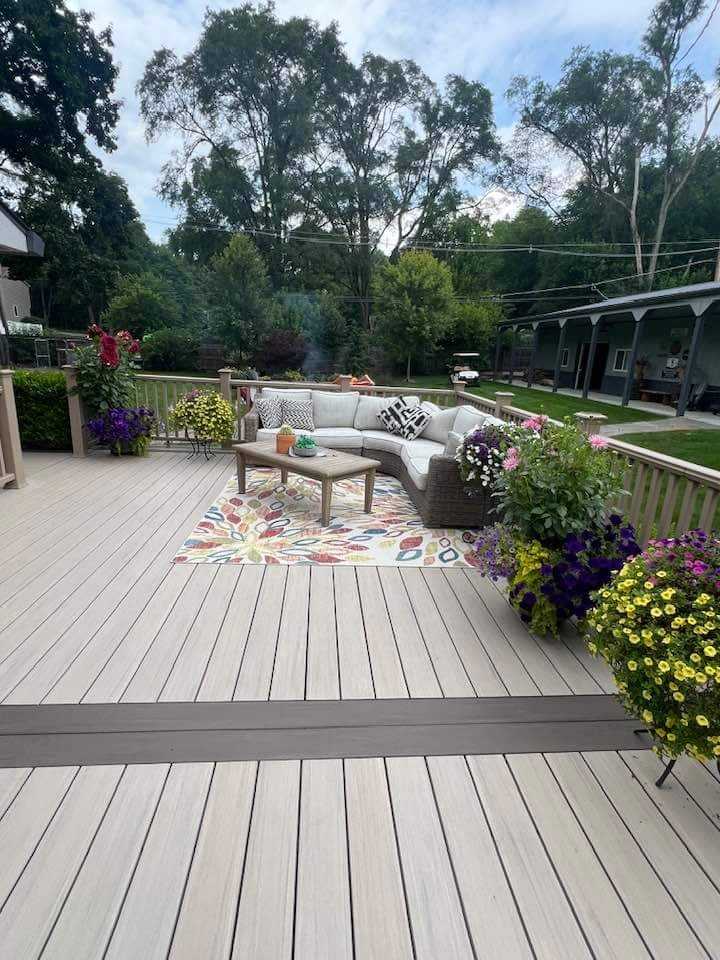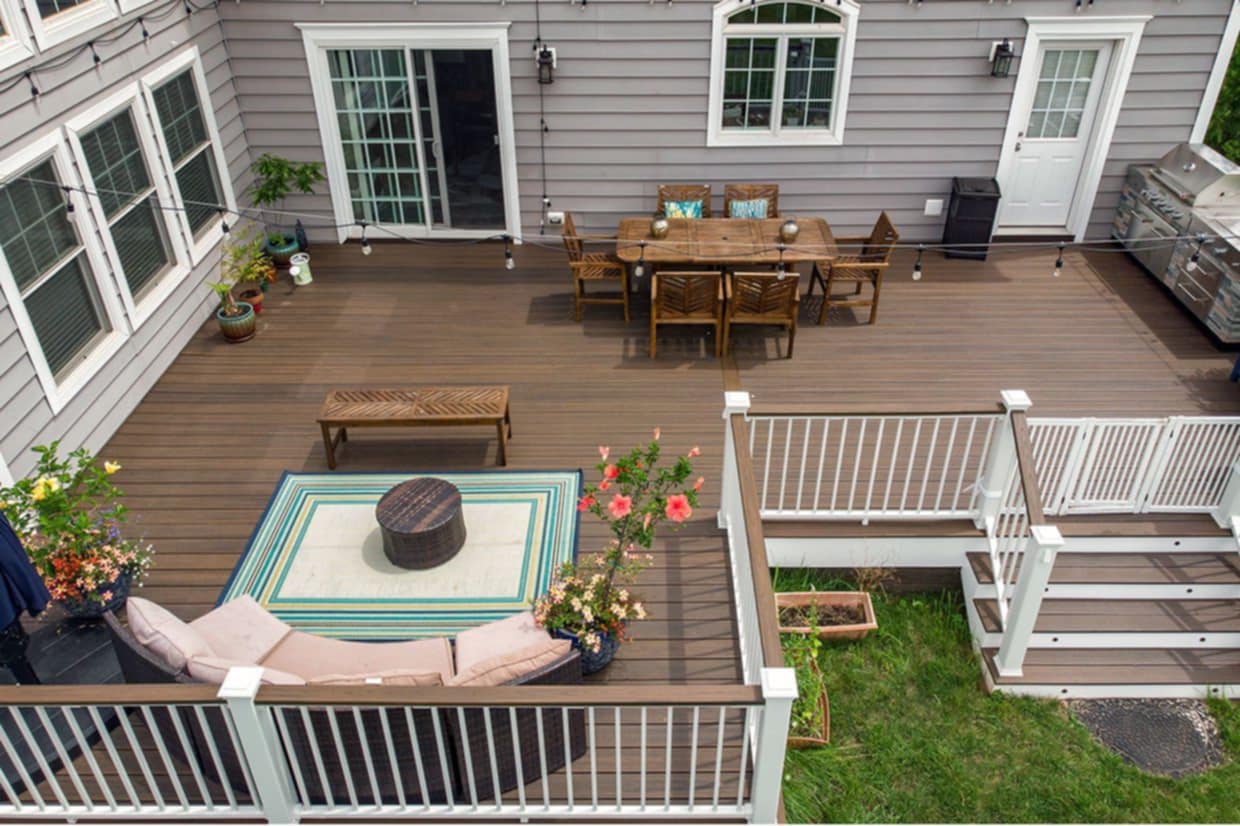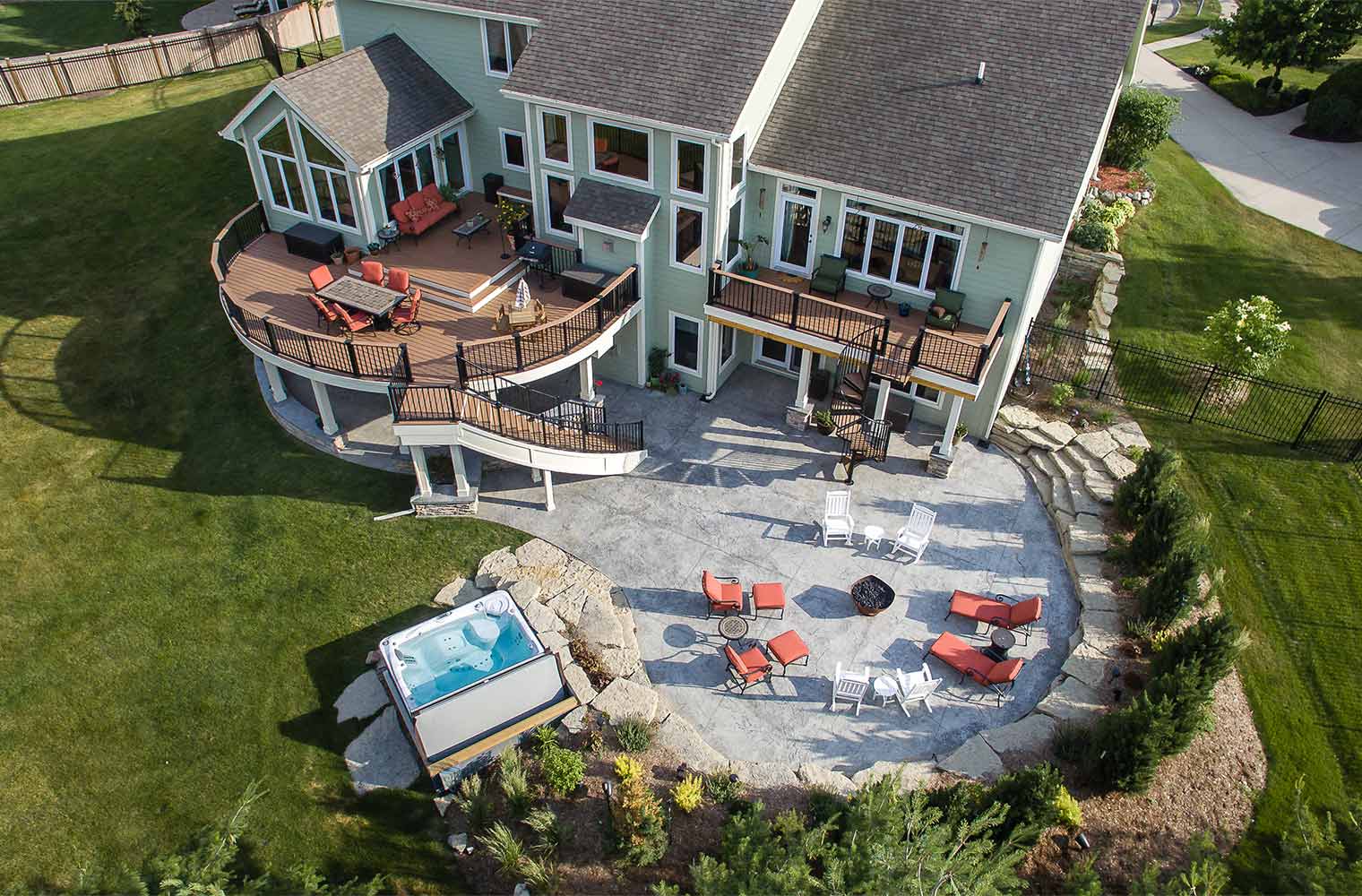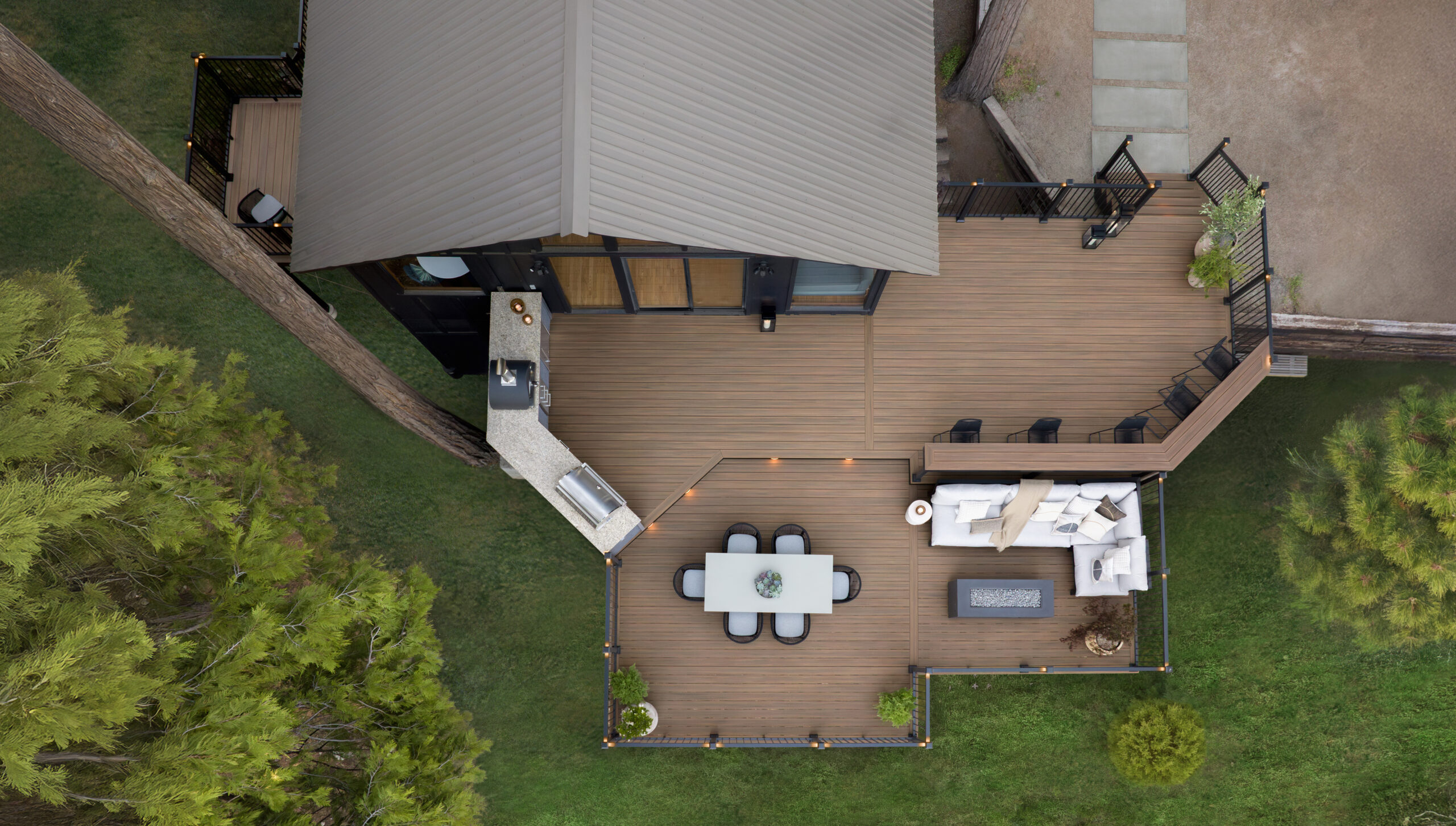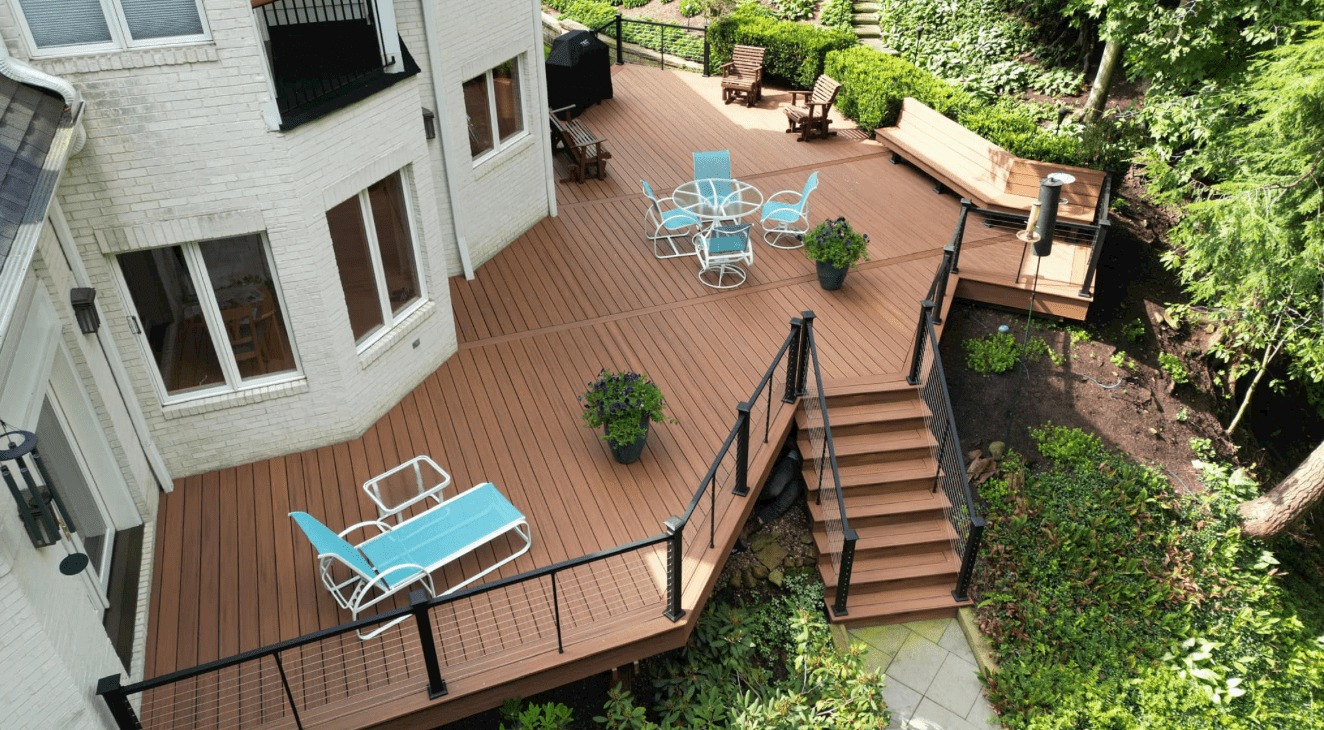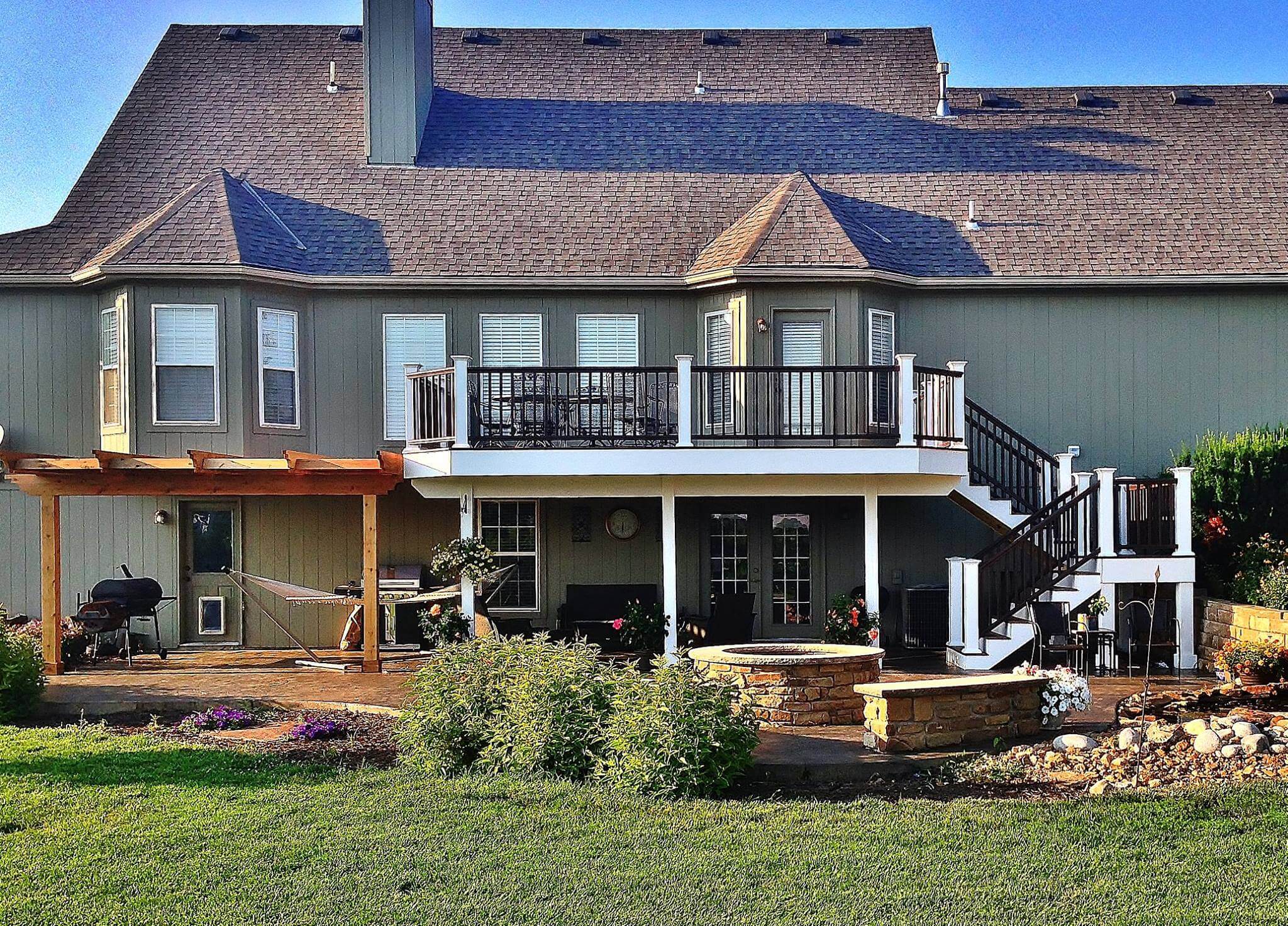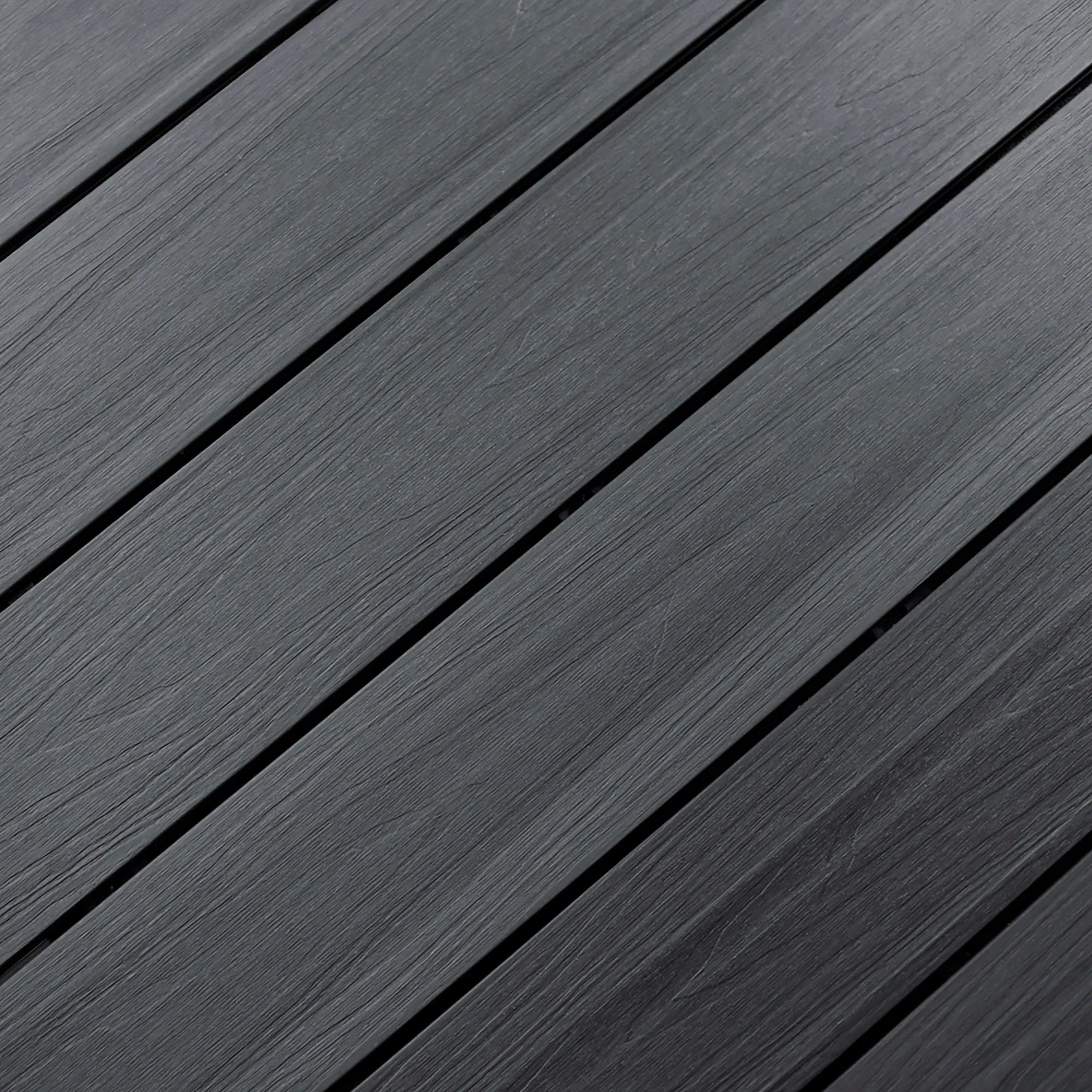Whenever we build a new deck, it’s pretty common to hear questions from our customers about the comparison between Trex and Deckorators. Trex and Deckorators are popular decking brands specializing in PVC and Composite deck materials. Some customers have preselected favorites, while others have never heard of either option. This post will show you how the two brands differ.
Utility Function
When debating the best decking materials in the market, the argument typically turns to Trex vs. Deckorators. Both brands have loyal customer bases for their long-lasting durability and weather resistance. However, they differ in several ways.
Composite vs. PVC vs. Mineral-Composite
If not made from pressure-treated wood, decking materials consist of PVC or composite materials. With soaring prices and increasing demand, lumber decks are harder and more expensive to build. This being the case, many builders turn to PVC or composite (including mineral composite) materials instead.
Trex and Deckorators use wood based composite material and mineral based composite, respectively; neither uses PVC in their deck lines. So, we’ll focus on comparing composite and mineral composite to see which fares better.
What is Composite?
Composite, or wood-based composite, is a highly durable material that combines wood and plastic. Aside from the bonding compound, the wood and plastic materials are typically recycled parts. The wood derives from recycled woodchips, while the plastic comes from any regular recycled plastic.
Trex is one of the most popular composite decking brands on the builder’s market. Products like the Trex Transcend line offer a high-end outdoor experience. The wood and plastic combination make it durable.
Mineral Based-Composite
Only Deckorators has the patent for the mineral composite technology, also known as Eovations Technology. Mineral composites can withstand more pressure than any decking material due to their build including plastic polymers and ground minerals. During production, the compounds expand to form a wood-like appearance.
One of Deckorator’s lines, Voyage, is the most sought-after mineral-composite decking material available for purchase. All mineral deposit decks are entirely thermal resistant and contain slip-resistant grooves. A Deckorator’s deck with mineral composite is a game-changer.
Durability
In terms of durability, the clear winner is Deckorators. That said, Trex and other composite-based decking systems hold well due to their wooden particles. In fact, The Trex Transcend line, made of composite, outlasts Deckorator’s wood composite lines in a load-bearing test.
However, Deckorator’s mineral composite contains metal material, making it virtually indestructible. Though there is plastic in mineral composite, it stretches during production in a way that centers the metal foundation. That metal foundation gives it the edge over its competitors.
Why not ask our professional deck builder for comprehensive materials lists to help you formulate a solid deck plan?
Test of Weight Resistance
In a weight comparison, a standard PVC deck held 681 pounds per 50 square feet. The Trex composite deck managed 872 pounds in the same 50 square feet in the same study. Meanwhile, Deckorator’s mineral composite stood up to 1,075 pounds in the same space.
With the ability to hold more than 200 pounds more than the Trex composite deck, the mineral composite is the clear victor.
Weather Resistance
Weather resistance is a significant point of consideration. When designing a deck, you would want to ask these questions:
- Is my deck exposed to the elements?
- Do I want to clean my deck infrequently?
- Will I be spending much time on my deck?
If you asked yourself these questions and answered yes to any of them, you might want to consider capping.
What is Capping?
Capping is a polymer-based coating that wraps around PVC and composite decking. The shell offers extra support for ultimate weather durability. Capping is not always necessary if the ventilation under the deck boards, or gapping, is secure.
However, decking that sits next to a water source will need extra protection. It is crucial for composite deck boards, as the wood particles absorb moisture. When deck boards absorb water, they expand and take damage. This is what makes Deckorators stand in front, Deckorators mineral based decking is the only approved decking for water and ground contact.
Test of Water Absorption
In a test of water absorption over 24 hours, a Trex deck board absorbed 0.5% of water. In the same test, a Deckorator wood-based composite system held 0.28% of water. Finally, Deckorator’s Voyage mineral composite held 0.05% in a stunning win.
So, in the ongoing Trex vs. Deckorators debate, the mineral composite was the clear winner.
Additional Features
Beyond the utility of a deck, you want to achieve the right aesthetic. When designing a deck, attributes like color choice, lighting, and grooving matter. In addition, the deck should incorporate a house’s interior and exterior elements.
Color Choices
On average, most decking companies supply a minimum of four color choices: one warm hue, one cool color, one true wood shade, and a dark tone. However, the color choice is dependent mainly on the manufacturer.
The Trex Transcend Line in composite offers eight color selections. The Deckorator’s Voyage line comes in six color options.
So, purely going by the numbers, the Trex Transcend is the optimal choice if you’re determining your deck based on color. That said, there are plenty of other factors to consider, such as grip and traction.
Grip
Aside from durability and water absorption, a deck’s most crucial function is the grip. This affects both functionality and appearance; some may have preferences for how the grip looks. Customers should generally ask these questions:
- Do I have small children or seniors that will be using the deck?
- Am I close in vicinity to a water source?
- Will I be entertaining on this new deck?
If you answered yes to these questions, you will need to prioritize the amount of grip on your deck boards.
Grip, or slip resistance, aids in keeping feet on the ground. Water can cause you to slip if your deck is near a pool or lake. However, it is still possible to fall on a dry deck, so grip matters no matter where your deck is located.
Composite and wood decks have an inherent grip due to the wood included in their construction, the ridges of wood planks providing slip resistance. By design, these decks will offer a decent grip, even when wet.
Manufacturers of non-wood decking, like PVC and mineral composite, will carve grooving into deck boards to replicate the ridges of a wood plank. By offering traction, manufacturers of PVC and mineral composite make their products comparable to composite and wood. However, the only true way to know if the artificial grooves measure up to their natural counterparts is to put each to the test.
Traction Test
In a test to determine the most slip-resistant decking, the Trex Transcend offered an average of 0.48% traction on a dry deck board and 0.35% on a wet board. A Deckorator wood composite board offered 0.50% on the dry material while providing 0.47% on a wet surface. Finally, the Deckorator’s Voyage supported 0.73% on the dry deck and 0.68% on the drenched deck board.
In terms of traction, the Deckorator’s Voyage mineral composite provided the most grip out of the other contenders. So, even though its grip is artificially added rather than naturally inherent, mineral composite still stands supreme for safety.
Warranties
After going through the time and cost to build your deck, you want to ensure its protection. The last thing that homeowners search for in a deck is the warranty. However, a good warranty is worth the upfront expenses in the long run.
Trex and Deckorators both have fade and resist warranties that last for 25 years. However, the Deckorator Voyage line offers an additional 50-year structural warranty. For reference, a typical wood deck lasts between 10-15 years.
If you want to solidify a lasting warranty, 25 years is more than the average deck’s lifespan. So, either way, you’re covered for the life of one, maybe even two decks. Not to be outdone, however, the Deckorator Voyage goes above and beyond the rest.
The most significant difference is Deckorators replacement warranty. A significant part of the deck’s cost is labor, almost with every other composite decking, if they fail it’s on you to pay the labor to replace it. This can easily cost as much as the decking itself. If their decking fails its no money out of your pocket, they will cover all expenses.
Trex vs Deckorators
When testing for durability, water absorption, slip resistance, and warranty the consistent winner was Deckorator’s Voyage mineral-composite decking line. Although Trex performs well, the wood composite does not hold up as well as the mineral based composite.
About Decked Out Builders
Contact the premier builders at Decked Out Builders for reliable custom deck builds in Woodstock, IL. As a family-owned business, we understand the importance of a quality outdoor deck. We prioritize expert craftsmanship and prompt communication.
If you’re in Southern Wisconsin or Northern Illinois, contact us to take advantage of our 50+ years of experience. Then, if you still can’t decide between Trex vs. Deckorators, we’ll help you find the best solution. Contact Decked Out Builders at (815) 900-5199 today.


